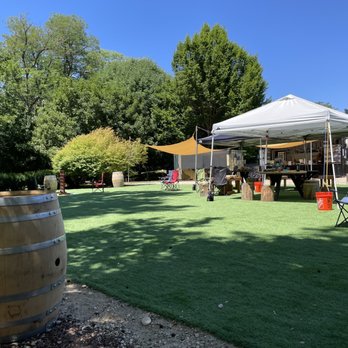Boise, Idaho – Green Acres Food Truck Park, situated at the confluence of 14th Street and Shoreline Drive, provides a delightful open-air dining experience. Customers can savor a diverse array of culinary offerings, beverages, and leisure activities such as cornhole, all within close proximity to the scenic Boise Greenbelt.
However, outdated municipal regulations pose challenges for some mobile food vendors who operate within the city limits. Fortunately, there are positive developments on the horizon.

On February 27th, the City Council considered a proposal streamlining the licensing process for food trucks and other mobile food vendors, aiming to facilitate their entry into the marketplace. Andrea Cantor, an economic development advisor within the mayor’s office, presented the proposal to the council, advocating for a reduction in the number of required licenses and a reclassification of mobile food vendors, placing them under the same regulatory framework as brick-and-mortar restaurants.
Cantor justified the initiative by highlighting its potential benefits for aspiring small business owners, who are increasingly opting for food trucks due to the rising costs of commercial real estate in the Boise area.
The proposal necessitates an update to the city code and is anticipated to come into effect when vendors renew their licenses in early 2025. Council members expressed enthusiastic support for the proposal during the meeting.
Under the current system, food truck operators are obligated to obtain multiple licenses, including one for the vehicle itself and separate licenses for each individual working within the truck. This system presents redundancies, as some requirements, like health department clearance, are already fulfilled through other processes.
The proposed changes would also have an impact on farmers markets, where many vendors are farmers residing outside the city limits. Amber Beierle, the executive director of the Boise Farmers Market, highlighted these concerns to the city last spring, as local farmers markets readied for their opening season. Beierle commended the city’s receptiveness to the issue, emphasizing their efforts to establish a “path to ‘yes'” for both new and existing vendors.
Partaking in meals at food trucks has become a prevalent dining option, offering breakfast, lunch, dinner, or simply a casual snack. Cantor has observed a noticeable surge in the number of food trucks operating within the city over the past five to six years, stating that “one can visually see that there are more” present throughout the city and at private events, although precise figures were unavailable.
In the forthcoming months, Cantor’s office intends to provide clearer information regarding food truck licensing requirements on the city’s website and conduct outreach initiatives to inform vendors about the upcoming changes. These efforts are anticipated to encourage the establishment of new food trucks within the city.
